44 Fun Facts About South Africa: Unraveling the Rich History, How Many Official Languages?! and the Beloved Braai Culture

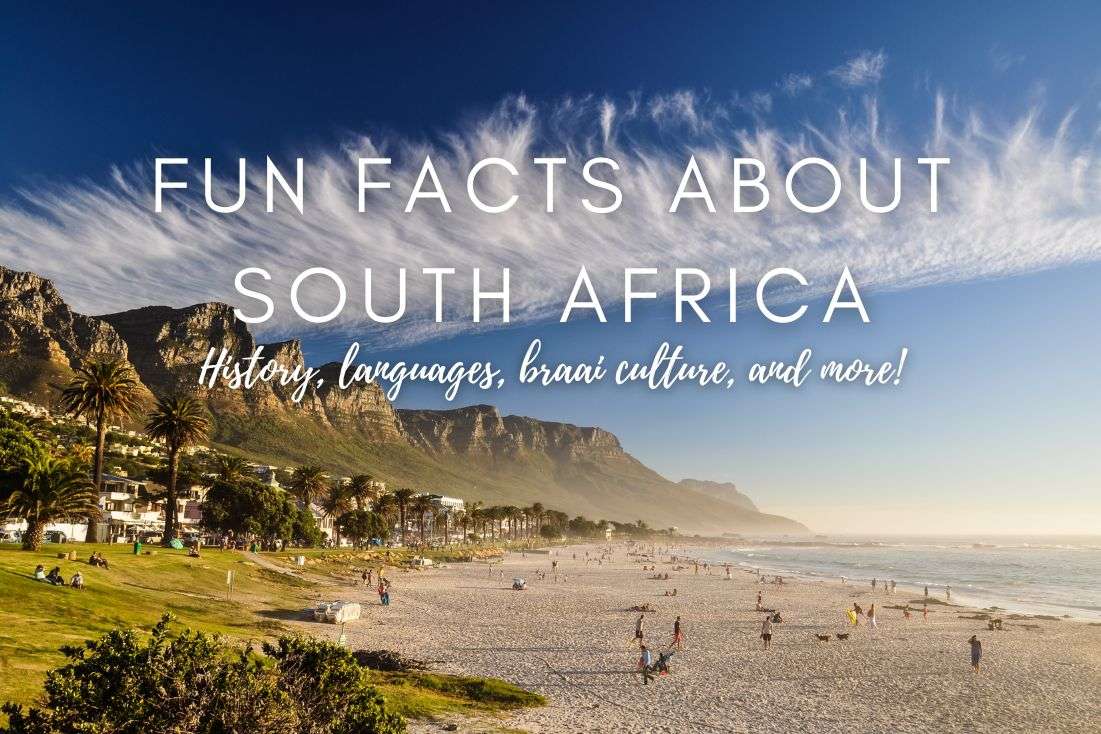
So, you're thinking of skipping the usual touristy spots like Mexico and Italy this year, and you fancy a bit of real adventure, huh? Well, look no further than South Africa. It's that one destination where you won't feel like you've seen it all before on Instagram.
You might have figured out by now that I'm not a fan of excessive planning and coming to conclusions based on theories and hype. I'm more of a "firsthand experience over mumbo jumbo" kind of guy. But even I believe that when you're heading to a new country, a little prep can go a long way.
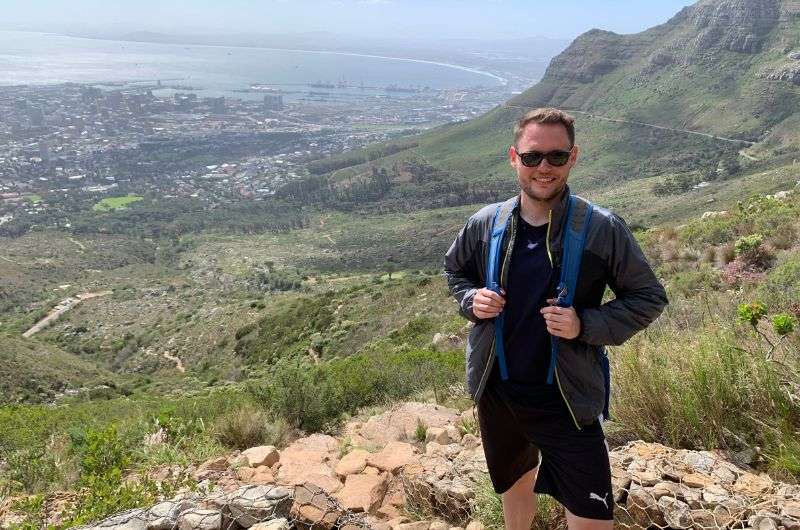
I’ve got two packed trips to South Africa under my belt, and many more to come!
In this article, I've put together just enough info to get you started without drowning you in details. You'll get a taste of everything—history, economics, religion, holidays, and food in South Africa. But don't worry, I won't scare you away with too much info. I want you to pack your bags and go! And, if you’re a super fast packer and already have one foot out the door, make sure to save my South Africa itinerary!
South Africa's history in a nutshell
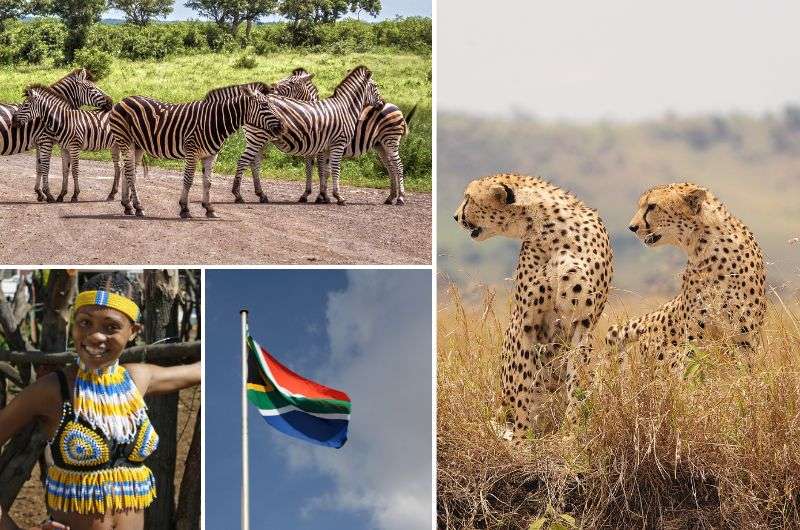
If history isn't your thing, brace yourself; this part's a little lengthy. South Africa's history is seriously fascinating, stretching from way back in prehistoric times to the modern era, and a lot of stuff has happened in that time. Like A LOT a lot.
1. Africa is the birthplace of humanity
Africa, in general, is considered the birthplace of humanity and its genetic diversity, with South Africa being a prime example. It's home to some of the world's oldest archaeological and fossil sites. There's a bunch of UNESCO-worthy places here that prove it. And just like in many other African countries, the 20th century was full of conflicts with consequences that still linger today. So, let's hop into some key moments in time together.
2. Prehistory: 3 million years of humans
As I mentioned, South Africa boasts numerous archaeological and fossil sites. The Gauteng province, nicknamed the "Cradle of Humankind," is a goldmine of cave systems. Thanks to limestone mining, these caves have revealed remains of various species, including early humans. Sterkfontein Caves, not far from Johannesburg, hold the richest collection of hominin remains on Earth. South Africa is also where they discovered the skull of the Taung Child, an Australopithecus that's a direct ancestor of us, Homo sapiens.
All these findings tell us that life in South Africa was vibrant over three million years ago, with modern humans living here for at least 170,000 years.
3. The Bantu expansion: Spreading through the continent
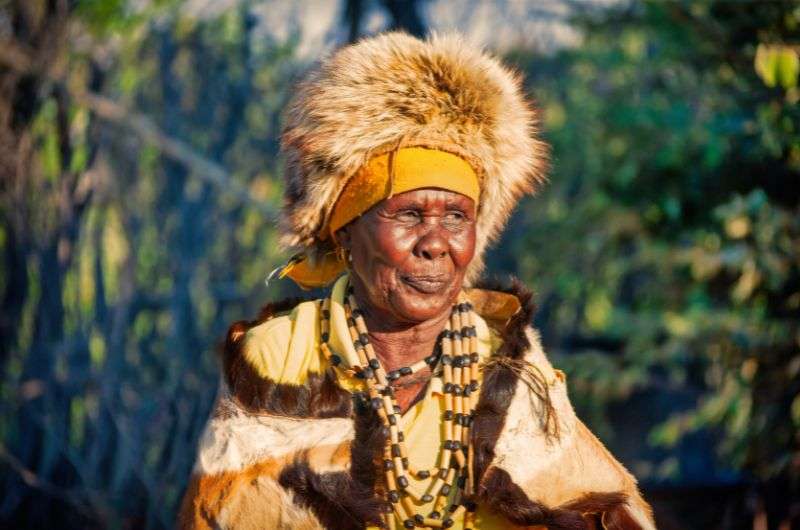
Member of the Bantu tribe
The Bantu people were a group of ethnicities who migrated through Africa between about 3000 BCE and the 5th century CE. Agriculture and ironworking were their game changers. These advancements allowed them to live in larger groups than the hunter-gatherer folks and, well, they kinda out-populated other tribes all over Africa. Their expansion reached its final stop in South Africa, where around the 5th century CE, they bumped out the original tribes and made themselves at home.
4. The first settlers from Europe were Dutch
Now, picture this: it's the 17th century, and Europe's advanced and wealthy Dutch folks decide to start the whole colonization trend in South Africa. They kick it off in 1652 when the Dutch East India Company plops down the first settlement at the Cape of Good Hope, which is near today’s Cape Town (epic city, by the way, you need to spend at least a few days there!). More settlers soon follow, claiming even more land, and that leads to some clashes with the local tribes (duh, right?).
5. The British takeover inspired the Great Trek
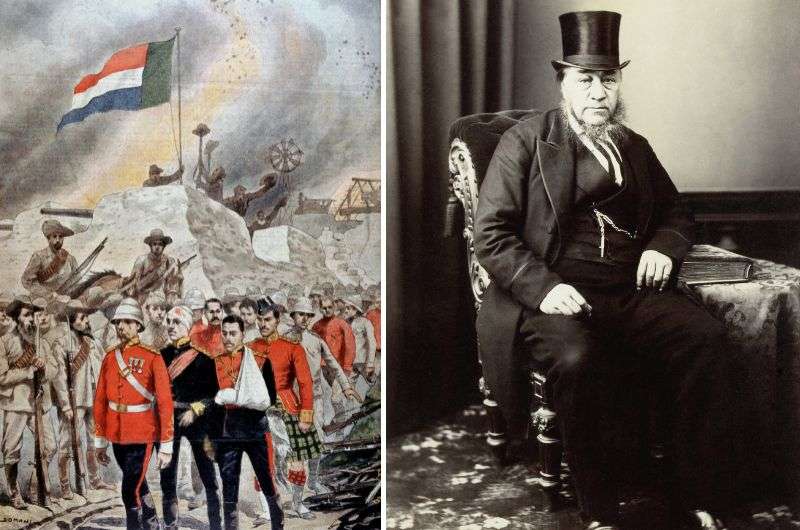
The Boer Republic and its president Paul Kruger
Fast forward to the 19th century, thanks to all the ruckus in Europe, the British take over the Cape Colony. This British rule causes a massive move by African tribes, which we call the Great Trek. They basically said, "We're outta here," and set up their own Boer republics to get away from British rule.
6. The Boer wars further separated the whites and blacks
Things get tense between the British and the Boer republics, leading to two wars—the First (1880-1881) and the Second (1899-1902) Boer Wars. Both wars end with the British taking control of Boer territories, setting up concentration camps, and, sadly, the death and internment of tens of thousands of Boer civilians.
7. The whites formed the South African Union
Eight years after Britain's victory in the Second Boer War (1910), the white South Africans establish the South African Union, a dominion within the British Empire, similar to Canada. In 1913, a Land Act restricted land ownership by Black Africans to just seven percent of the dominion's territory. It it just went downhill from there (for the black folks).
8. Money revealed their character in all the wrong ways: Apartheid era
The discovery of gold and diamonds during a global economic crisis in the early 20th century led to South Africa's economic boom. In 1948, the National Party, pro-segregation, won the elections and enforced apartheid, classifying the entire population into white and non-white racial groups with different rights. A minority of 20% whites held control over socio-economic aspects, leaving the black majority severely disadvantaged.
9. The Republic was supposed to end the Apartheid, but it didn’t really
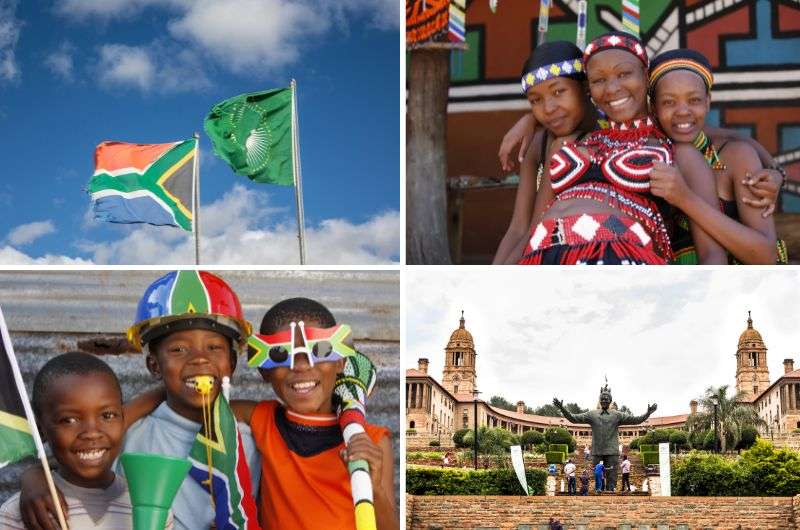
1961—South Africa became an independent republic
In May 1961, the country became a republic, separating itself from the British crown and allowing South Africans to elect their own president. Despite both internal and external resistance, the government continued with apartheid policies, leading to the emergence of "terrorist" groups fighting against white minority rule.
Fun fact: In 1970, the Olympic Committee suspended South Africa from the Olympics until apartheid ended.
10. The 70s brought a glimmer of hope for black South Africans: The real end of the Apartheid?
Fast forward to 1974, and there's a glimmer of hope for black South Africans. The Mahlabatini Declaration of Faith was signed, marking the first agreement between black and white leaders. In 1990, the ban on political organizations was lifted, leading to Nelson Mandela's release from prison and he began striving for an end to racial discrimination. (I know it is the first time I am mentioning him, so here is a little background: Nelson was born into the Xhosa Royal family, so he had a chance to study and become a lawyer. Influenced by Marxism he secretly joined the banned South African Communist Party. Due to this, he ended up in prison in 1962). 1994, the first universal elections took place, with the ANC (African National Congress) led by President Mandela emerging victorious.
So, there you have it, a quick dive into South Africa's history. Now, if you want to get the full scoop, you'll just have to go there yourself!
South Africa politics
After reading the history, you must be wondering, "What's happening in South Africa now?"
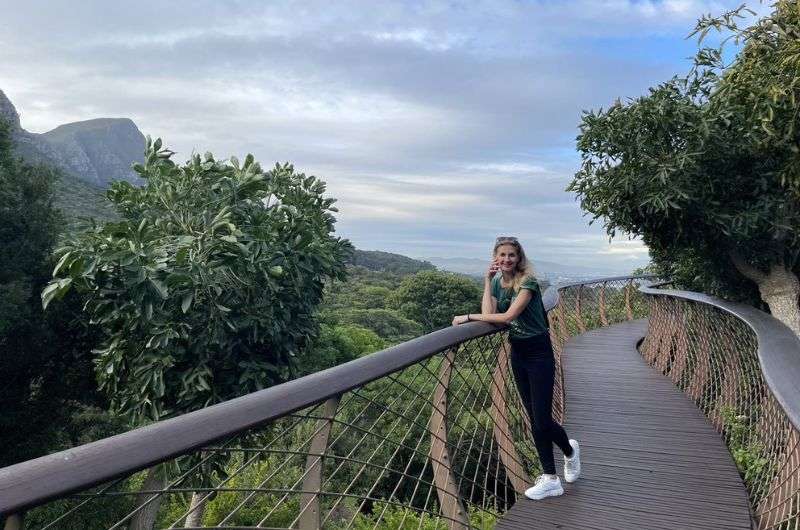
Hanging out on the Boomslang bridge in Kirstenbosch National Botanical Garden in Cape Town
11. The president wears many hats
Well, the South African Republic is currently a parliamentary republic. Unlike most countries and just like Namibia, President Cyril Ramaphosa wears two hats as both the head of state and the head of government.
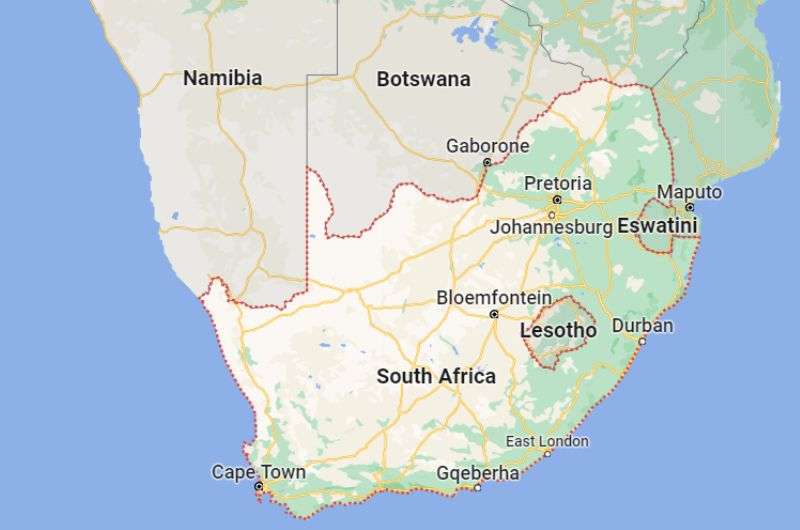
South Africa with its three capital cities—Pretoria, Bloemfontein, and Cape Town
I've never had the pleasure of meeting Cyril in person, but he looks like a decent fellow in photos, someone who genuinely cares about his country—which isn't something you can say about all presidents. He was elected by parlament in 2018 after his predecessor, Jacob Zuma, stepped down amidst corruption scandals that cut his term short.
12. South Africa founded the UN
When it comes to international relations, South Africa, along with other members of the Union of South African, was one of the founding members of the UN and the African Union. It's also a member of the World Trade Organization (WTO) and many other international organizations, the acronyms of which none of us can really remember.
13. It has how many capitals?!
What is even more interesting is that South Africa has three capital cities—Pretoria, Bloemfontein, Cape Town. Wonder why? Because it follows a system known as a split capital arrangement. This system was created due to the nation's distinct political past and the requirement to accommodate its numerous ethnic and linguistic groupings.
14. It also has many governments
What's interesting is that the entire country is divided into nine provinces, each with its own provincial government. These governments have powers limited by the constitution, and, politically speaking, the smaller divisions within each province don't matter much.
South Africa geography
A day has 24 hours, and South Africa covers 1,219,090 square kilometers (470,693 square miles) —making it the 24th largest country in the world. Coincidence? Obviously. It claims 4% of the entire African continent, which just so happens to be roughly the same percentage of left-handed people in Japan. Another coincidence? For sure. But you might remember these "boring facts" now.
15. You can surf, sunbathe, and hike in the mountains, all in one day
I might not be a surfer, but if you are, this place could be your paradise because South Africa boasts a 2,500-km (1,553-mi) coastline, giving you a plethora of waves to ride. Speaking of the coast, you might find this list useful: The 13 Most Beautiful Beaches in South Africa.
If you prefer hiking in the mountains, then South Africa is also a great choice. A significant portion of the landscape is mountainous, with the most famous being the Drakensberg Mountains. You could even try conquering South Africa's highest peak, Mafadi, which stands at 3,450 m (11,319 ft). (Or, maybe stick to one of the fantastic day hikes around the country instead).
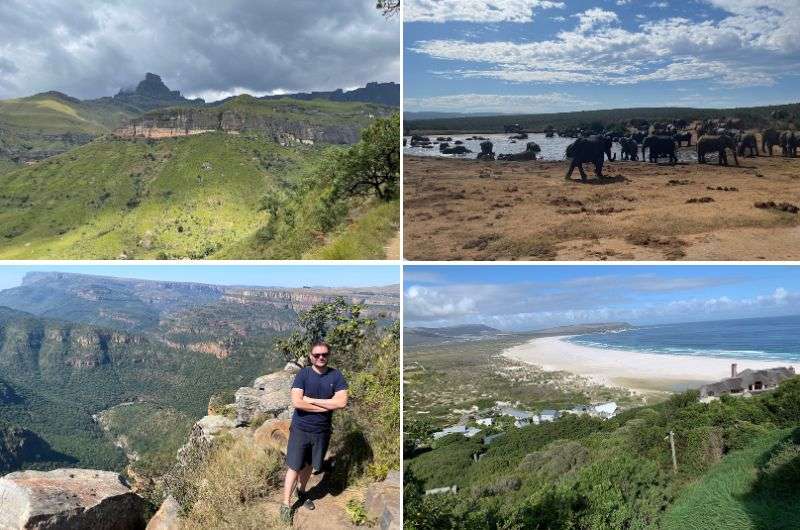
I simply love how much incredible nature South Africa has to offer. I even wrote an entire article about just its natural attractions
16. You can go from desert to jungle in a couple of hours
In the southwest, you'll find the extensive Great Karoo plains, which are dry and filled with savannas (occupy approximately 40% of South Africa) and deserts (occupy less than 10% of South Africa). On the other hand, the eastern part of the country is lush and fertile. If you're into building sandcastles, you might want to visit the Kalahari Desert in the northwest. I hate the desert, so I happily skipped that section. Traveling to neighboring Namibia saturated by sand limits for years to come!
17. South Africa’s safaris are unforgettable
South Africa also offers you the chance to explore 22 national parks, boasting beautiful landscapes and exotic wildlife (forests and bush occupy approximately 10% of South Africa). Kruger National Park is the top destination for any wildlife enthusiast, while Addo Elephant Park may sound like there’s only one species to be found there, but that’s very far from the truth.
18. One of its neighbors is in the middle of the country
South Africa's neighbors are Namibia, Botswana, Zimbabwe, Mozambique, and Eswatini. And inside the country, you'll find the Kingdom of Lesotho, often called the "African Switzerland." It’s like an island, but not surrounded by water. It just sits there, in the middle, being a country entirely of its own.
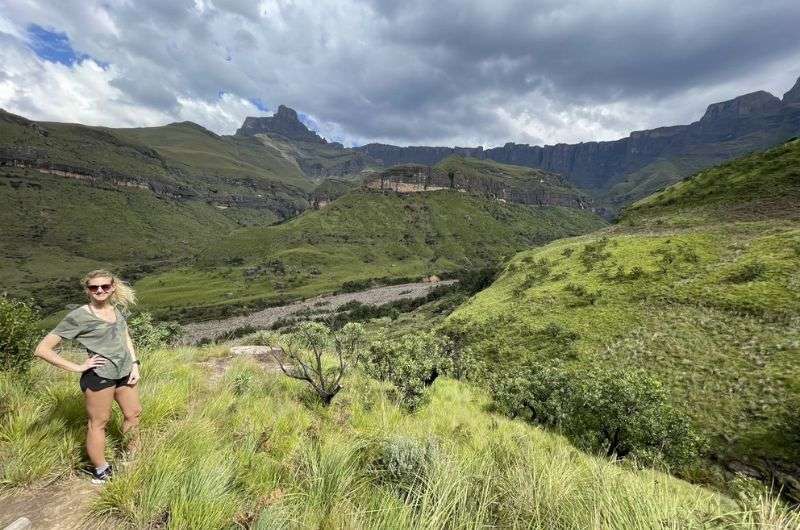
Enjoying some Drakensberg hikes
South Africa economy
In terms of Africa, South Africa's economy is doing quite well.
19. It’s doing well for itself...
After Nigeria, it's the continent's second-largest economy, boasting a robust industrial sector. The World Bank categorizes it as an upper-middle-income country, and it's the only African member of the G20.
20. … but a huge portion of the population is very poor
In 2022, the GDP decreased to 405 billion U.S. dollars. However impressive that may sound, South Africa also ranks at the top when it comes to the GINI coefficient, a consequence of the apartheid era. Not exactly a win to be proud of. If you're not sure what I'm talking about, don't be lazy and read my article about Namibia, where I explain more about the GINI coefficient. This is because a quarter of the population lives on less than what your morning Starbucks costs (EUR 1.2).
Note: Although nearly 30 years have passed since the end of apartheid, the glaring disparities between whites and blacks in the country are still evident.
21. A third of the country is unemployed
If you're not particularly keen on going to work, consider moving to South Africa. A third of the population can't find work or doesn't have a job. This high unemployment rate is due to low education levels and high crime. Historical brain drain has also contributed to high unemployment.
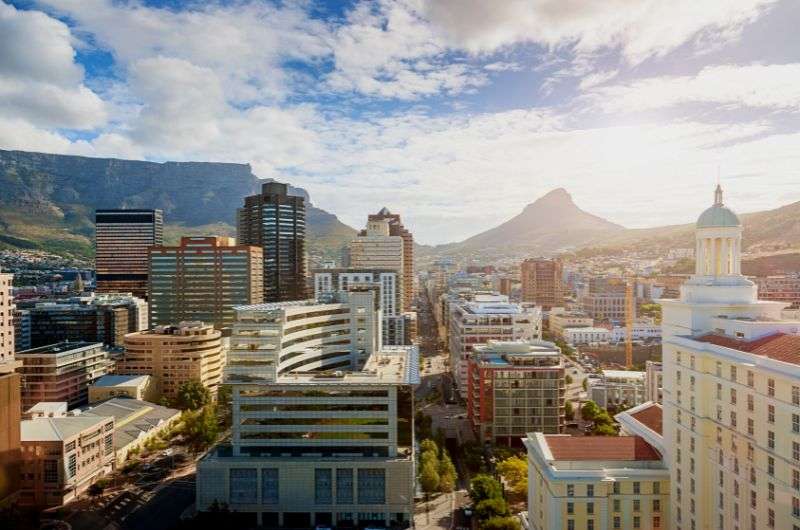
The city of Cape Town with Table Mountain and Lion’s Head in the background
In simple terms, qualified professionals are leaving the country in search of better opportunities, and statistics suggest that the departure of one professional results in the loss of jobs for another 10 unskilled individuals. If this doesn’t prove that “school is cool”, I don’t know what does.
22. Minerals, electricity, and tourists feed the economy
When people think of South Africa, they often think of gold and diamonds. Although mineral wealth doesn't contribute as significantly to the GDP as it did in the past (around 6% today), it remains an important part of the country's exports. The one thing missing from South Africa's resources? Oil.
If you light a lamp in Africa, there's a 66% chance that the electricity comes from South Africa. It's home to the world's largest thermal power plants that supply two-thirds of the continent!
I also boosted the country's economy a bit when I visited as a tourist a few times—clearly I'm a philanthropist. Tourism is one of the many industries that keep South Africa going strong. Despite the high crime rates, 5.7 million tourists visited in 2022.
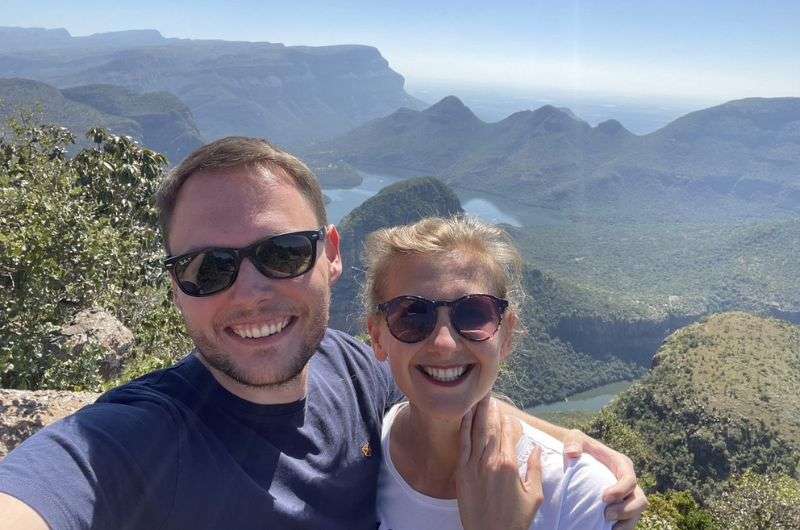
Look at these two tourists boosting the tourism industry’s revenue!
South Africa currency and prices
Now let’s talk about money, honey!
23. You won’t find dollars in South Africa
You might be surprised to know that they don't use local dollars in South Africa like in most other African countries; instead, they've got the South African Rand. In stores, you'll see it abbreviated as ZAR, which comes from the Dutch words Zuid-Afrikaanse rand. Even though South Africa doesn't have its own dollars, at least they kept cents, which are the subunits of the rand. Just so you know, EUR 5 will get you around ZAR 100, and the highest denomination of banknote is 200 rand.
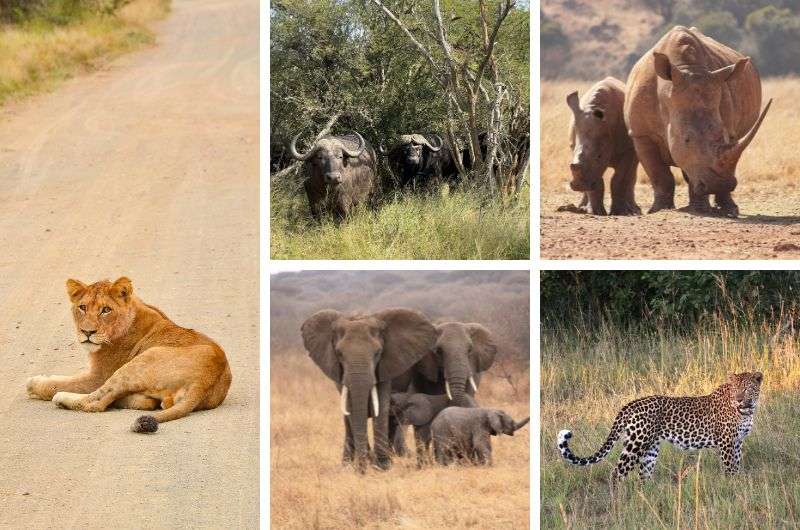
Here’s the Big Five! You can collect them all on South Africa’s ZAR bills
24. South African bank notes are wild
If you want to create your very own little zoo at home, try to get banknotes in all denominations: 10, 20, 50, 100, and 200 rand. Each of them features an animal from the so-called Big Five of Africa: a leopard, buffalo, elephant, lion, and rhinoceros. I won't tell you which animal is on which banknote; that way, collecting them will be more fun! If you read my article on spotting wildlife in Kruger National Park, you’ll see I’m a sucker for collecting things based on lists!
25. It’s rand or nothing
An interesting tidbit about ZAR is that South Africa, along with Namibia, Botswana, Lesotho, and Eswatini, formed the Southern African Customs Union, where the rand is fixed at a 1:1 exchange rate with other currencies.
What's amusing (probably not for the other countries) is that you can use rand for payments in other countries in the monetary union, but within South Africa, it's rand or nothing.
26. Is South Africa expensive? Not really
If you want to feel like royalty, head over to South Africa. It's a place where the prices of things depend on which part of the country you're in, but generally, it's pretty affordable. Here are some average prices in Cape Town, where it's more expensive compared to the rest of the country:
- Meal for 2 People, Mid-range Restaurant = ZAR 600
- Meal at McDonalds = ZAR 80
- 0.5 liters of local beer = ZAR 22
- Hotel room = ZAR 1,470
- Rent per month in 1 bedroom apartment (in city center) = ZAR 7,600
In general, South Africa is roughly twice as cheap as EU countries.
South Africa demographics
Where the people at?
27. South Africa’s population density would make Goldilocks happy...it’s juuuust right
South Africa has a population of slightly over 60 million people. That's a lot of folks. But considering the country's size, it averages out to about 50 people per square kilometer (129 people per square mile). Sure, when you compare population density to Namibia (3 people per square kilometer! Read more Namibia fun facts), it seems pretty high. However, let's not forget that Germany, for example, has almost 5 times the population density of South Africa.
28. Gauteng and KwaZulu-Natal are the most populous provinces
The most populous province, with 15.8 million residents, is Gauteng (home of Johannesburg), which is also the most economically significant. The second most populous province is KwaZulu-Natal (home of a bazillion tourist destinations, like the Garden Route, Drakensberg, and Kruger National Park!), with 12.1 million inhabitants.
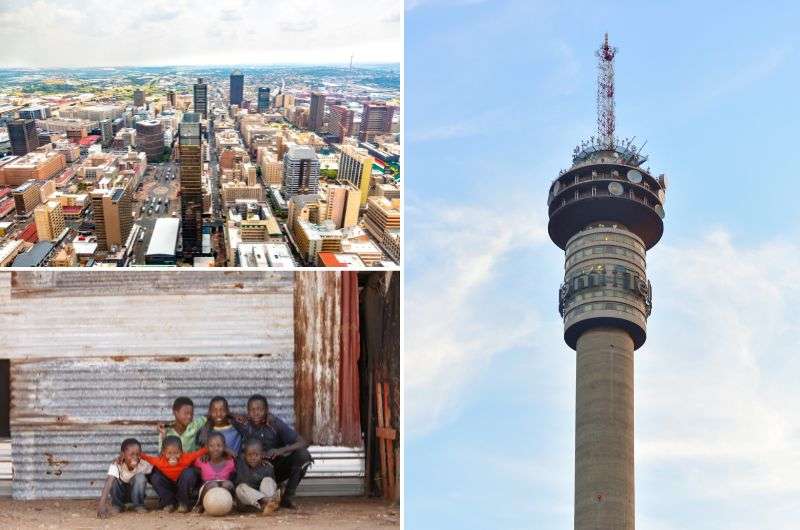
The city of Johannesburg
29. The Garden Route is where you’ll fall in love
Speaking of the Garden Route... The best hotel I’ve ever stayed at—let the weight of that assertion sink in—is a place on the Garden Route with an incredible terrace where breakfast is served overlooking the mesmerizing mountains hugging the meandering river. It’s also the place where my girlfriend mistook the hall of our room for some sort of communal area—it was spacious, that’s for sure! Check out Kambaku at Sea is you want to know what dreams are made of.
Now, back to other people facts:
30. Women live much longer than the men
As Beyonce sings, "Who runs the world? Girls!" Well, it holds true in South Africa too. There's a female majority in the country, albeit just by a percentage point. And, to add to that, women here tend to live longer, with an average life expectancy of 64.6 years, compared to 59.3 years for men. Not great, right? Now you can be grateful for where you live, where your grandparents are in their 80s and still going strong.
31. There's a mix of ethnicities, but blacks take the cake
What's particularly fascinating about the people in South Africa is their diverse ethnicity, which contributes to a rich and varied culture. More than 80% of the population is made up of Black Africans, which includes several ethnic groups like Zulus, Xhosas, Sothos, Ndebele, and Swatis, among others. I don't think I need to list more names, they’re hard to pronounce anyway. See how many of them you can remember when you’re done with this article.
Coloureds (mixed race) make up almost 9% of the population, while whites have a mere 8% representation in South Africa. I know, you can't add up to 100%. The remaining percentage is made up of people of Indian-Asian descent.
South Africa languages
You’ll get by with English just fine in South Africa, but it’s definitely not the only language being spoken. It may be the only one you will manage to pronounce though.
32. South Africa has 12 official languages!
Hold onto your hat! South Africa has 12 official languages. So, it snags the gold medal for the country with the most official languages. Quite a feat, isn't it? This is primarily because local ethnic groups use their original languages. Curious about which languages these are? No? Good, because I won't be listing them all anyway. But South African Sign Language just made it into law a in July 2023, so it deserves a special mention.
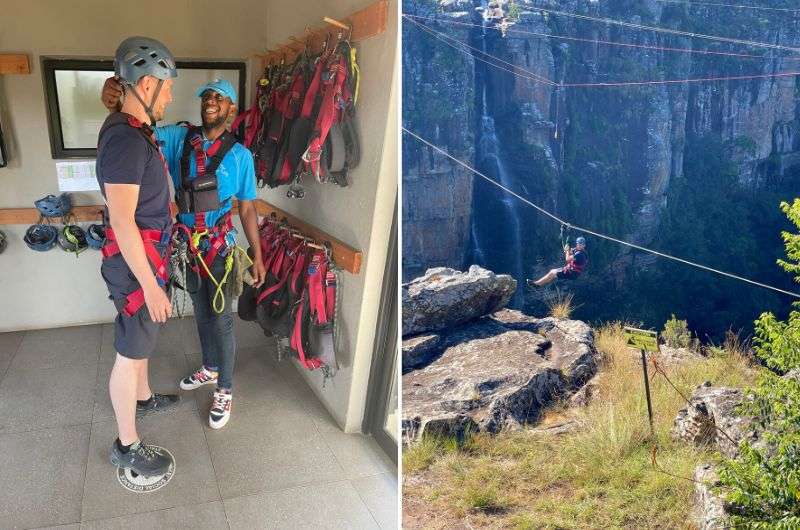
I'm glad I got instructions on how to complete this zipline in Graskop Gorge and not die in clear and understandable English
Regardless, if you speak English, which you probably do since you're reading this article, you're in luck. English is the primary language for official and business communication in government offices, as well as in the business world. English is also the main language of instruction in schools and universities, so you can easily get by with English across South Africa.
33. Gqeberha is celebrating South Africa's linguistic diversity, but you’ll still call it Port Elizabeth
There is an effort to promote the use of multiple languages, including Zulu, to reflect the country's rich cultural diversity. One example of this effort is the renaming of the city of Port Elizabeth to Gqeberha. Good luck pronouncing it! Hint: you need to make one of the Zulu click sounds! In the article: 5 Day Garden Route Itinerary you will find a link to a video on how to do it. Don’t break your tongue!
34. You can try learning basic phrases in other languages
However, if you want to make an extra effort and learn a few basic phrases in local languages, I'd recommend Zulu or Afrikaans. Zulu is the most widely spoken language in terms of the number of speakers, while Afrikaans is the language used over the largest geographical area.
Basic Zulu phrases:
Good day: Sawubona
Goodbye: Hamba Kahle
Thank you: Ngiyabonga
Please: Ngiyacela
No: Akukho
Yes: Yebo
Basic Afrikaans phrases:
Good day: Goeie dag
Goodbye: Totsiens
Thank you: Dankie
Please: Asseblief
No: Geen
Yes: Ja
Good to know: Google Translate has your back, as it offers translations for both Zulu and Afrikaans.
South Africa religion
As far as religion goes...
35. Jesus is the main man
In the realm of faith, the majority (around 80%) believe in Jesus as the one and only, while approximately 15% believe in themselves to the maximum extent because they're atheists. Apart from these two predominant groups, you can also encounter Catholics (about 7%), Muslims, and Hindus.
36. There is a large number of traditional healers in South Africa
Interestingly, South Africa also boasts around 200,000 traditional indigenous healers, with as many as 60% of the entire population making visits to these healers. They go by the name of sangomas and their healing methods blend faith with the local flora and fauna.
South Africa weather
Remember, South Africa is geographically diverse, with mountains, coasts, and plains. These factors all influence the weather, but hey, I'm no weather frog, so I won't delve deeper into those specifics. These basics should be enough to get an idea of what to expect, weather-wise, in South Africa.
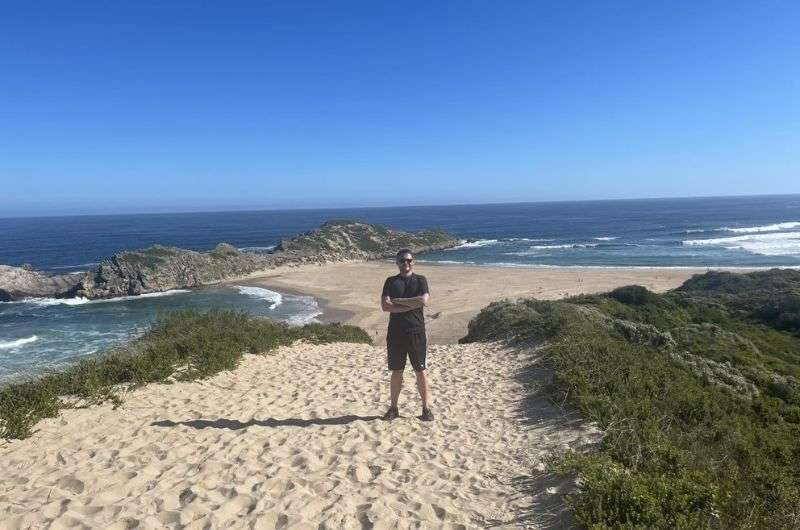
Garden Route weather in April... not too shabby!
37. Summer is in the winter
South Africa, being on the southern hemisphere, experiences seasons that are the opposite of those in the northern hemisphere. When it’s summer in Europe, it’s winter in South Africa. Likewise, spring in the US means fall in South Africa! It’s a little confusing at first, but you’ll get the hang of it.
38. South Africa has a smorgasbord of weather conditions
Given its vast expanse, South Africa encompasses 3 distinct climatic zones. Most of the country is located in the subtropical belt, with a Mediterranean climate strip along the coast and a continental dry climate in the interior.
There are varying temperatures on the east and west coasts due to the local ocean currents that have different temperatures. So, for those who bask in warmth, the eastern regions are your go-to spot, where even in winter, you'll find temperatures ranging from 15–20 °C (59–68 °F).
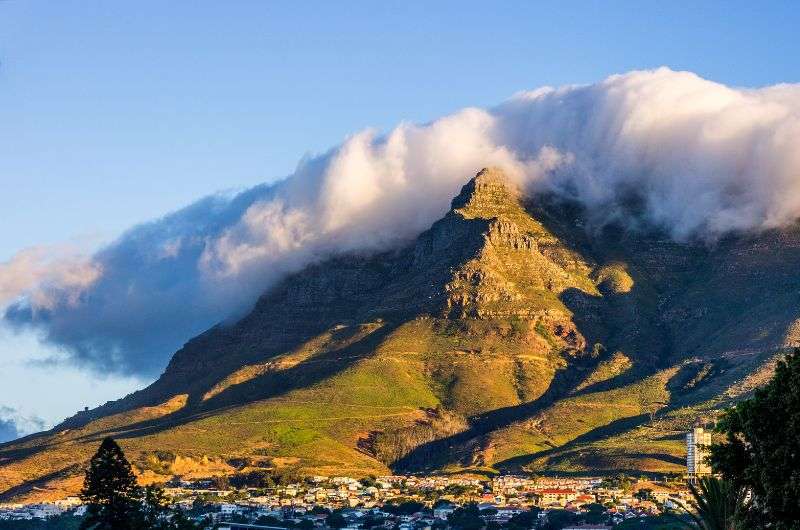
The weather in South Africa is different in each province
Meanwhile, on the western side, it's a cooler 8–15 °C (46–59 °F). In summer, the average temperatures on both the east and west coasts hover between 25–30 °C (77–86 °F), but the west is significantly drier than the east.
39. Drought woes: The ongoing struggle for water
Here's a not-so-funny "fun fact": I'd recommend packing lots of water. South Africa has been grappling with drought for several years now. In 2018, they even declared a state of natural disaster due to extreme drought. Since then, things have gone from bad to worse.
In 2021, they even chopped down thousands of trees around Cape Town, particularly pines, which are big water consumers, just to save water for the humans. Have you ever heard of "Day Zero"? It's a day that strikes fear into the hearts of all Cape Town residents because it signifies the need for the most severe water restrictions due to drying reservoirs. What does that mean? It could lead to water cuts, with people in the city receiving daily water rations. Pretty scary, huh?
And while we're on the topic of Cape Town, have you read the article "20 Best Things to Do in Cape Town"?
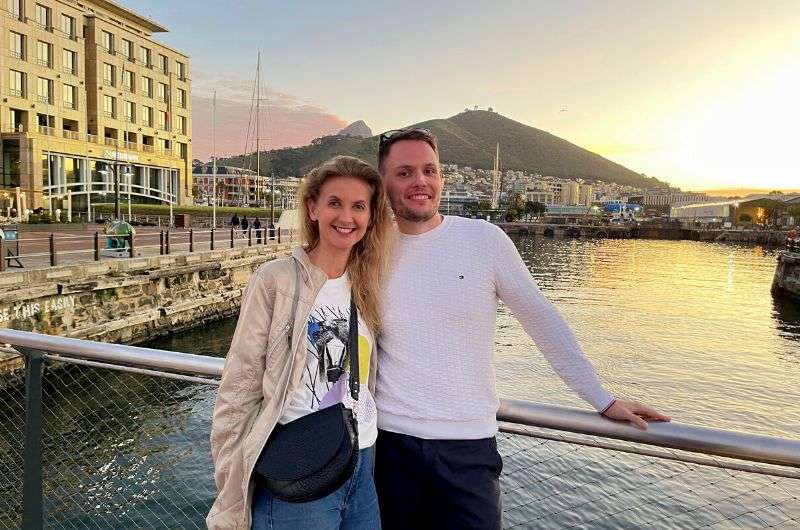
My last visit to South Africa was in April and I think that was a brilliant choice on my part
40. What is the best month to travel to South Africa?
The best months to set out on your South African adventure? According to my humble opinion, all months work in one way or another. You will need to visit South Africa more than once to see it all anyway, so you can always tailor your itinerary to the month you can snag vacation time in.
Of course, it depends on your preferences, but it seems like there's hardly a wrong time to visit:
Planning some beachside sunbathing? You'd do well to visit during the summer (October – April). Is Kruger National Park your main attraction? Be aware that the rainy season here runs from September to May. But that doesn't mean it's pouring all day; it's usually brief but heavy showers plus you’ll probably see baby animals (read my "Big Kruger National Park Travel Guide" for the full scoop on that.) If you're into mountain hiking, the summer months are a better choice due to warmer temperatures. And for Cape Town and Garden Route, you don’t want to be there for winter, when it can rain a lot).
South Africa holidays, customs, and famous people
Let me tell you, South Africa has produced some remarkable individuals. And when they’re not out being awesome, you’ll probably find them grilling up a good steak!
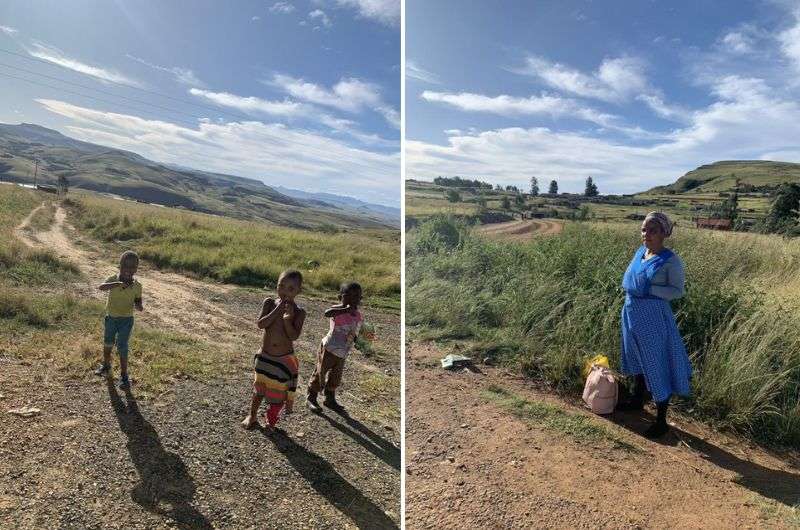
41. South Africans love their BBQ!
Have you ever heard of South African "braai" culture? The word braai means grill in Afrikaans. Do you mainly associate barbecue and grilling with American culture? I did too, until I visited South Africa and discovered that it's a common tradition and social custom here.
Even though South Africa is home to various ethnic groups, they all enjoy a good old grill. So, the holiday for celebrating cultural diversity traditionally involves a big barbecue, and that's on September 24.
A fond memory: This is the perfect time to go down memory lane to that time I had an almost romantic experience in the wilderness close to Kruger National Park, hanging out with strangers around a fire at Ndhula Luxury Tented Lodge—way out of my comfort zone for me! Both the talking to random people and the cloth walls of our admittedly very luxurious “tent”!
42. There’s always something to celebrate
Thanks to its rich history, South Africa celebrates numerous public holidays that commemorate significant historical milestones. For instance, there's Freedom Day on April 27, the day in 1994 when the first democratic elections took place, and Nelson Mandela was elected president.
Another example is Youth Day, celebrated on June 16, to honor the student protests against the introduction of African languages in schools in 1976. But I've covered enough history already, I think.
43. Some very famous people hail from South Africa
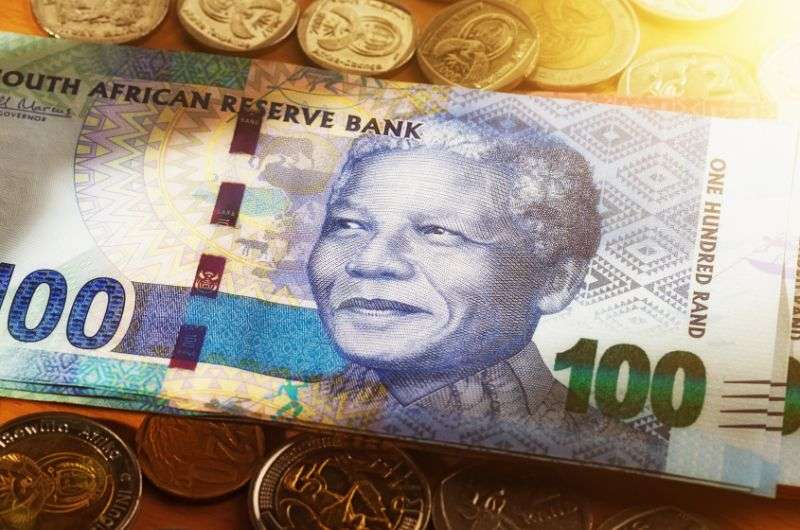
The first black president of South Africa—Nelson Mandela
I'll start with the big gun, and you probably guessed it: Elon Reeve Musk. Yes, the founder of SpaceX, CEO of Tesla, and owner of Twitter was born in Pretoria. I personally hate him, but you can’t deny he’s famous.
Another notable figure from South Africa (whom I've mentioned in the history section) is Nelson Mandela. The first black president of South Africa, a human rights icon, Nobel Peace Prize laureate, and symbol of the fight against apartheid. He divides opinions, since he’s considered a hero by some for his anti-apartheid struggle and a terrorist by others for his armed resistance against the regime. You choose your own sides, I’m not here to be a referee.
Speaking of Nobel Peace Prize winners, another South African, Desmond Tutu, an Anglican bishop and human rights activist, received this prestigious honor.
Charlize Theron, an Oscar-winning actress known for her roles in numerous famous films, was also born in South Africa and lived there until her early 20s.
Last but not least, there's John Ronald Reuel Tolkien, an English writer and the author of the famous books "The Lord of the Rings" and "The Hobbit." You may have heard of him.
44. South Africa’s food is as diverse as its people
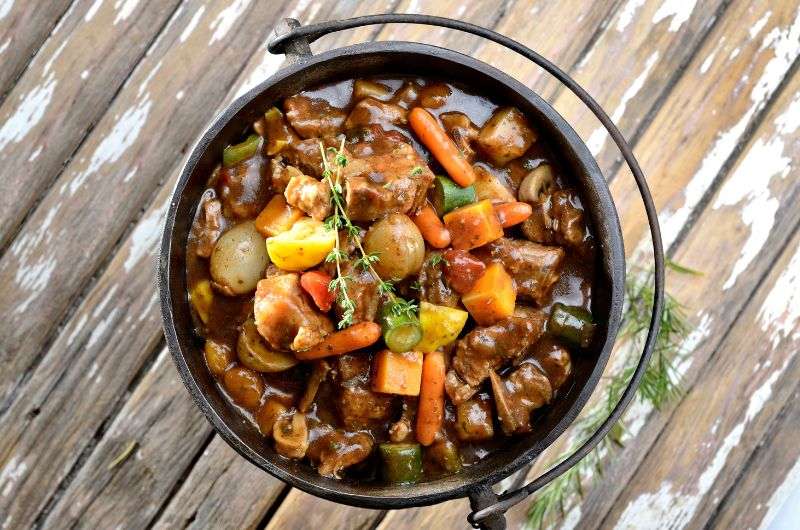
Potjiekos
A favorite topic for all food lovers: local cuisine. South African food reflects the country's diverse history. With a multitude of nations stepping onto this land throughout history, local tastes have become a fusion of African, Oriental, British, Dutch, and more.
The most common way to prepare food is the aforementioned braai. So, what's usually sizzling on the grill? Boerewors—a farmer's sausage made from minced beef and a blend of spices including coriander, nutmeg, and black pepper. Other traditional dishes include biltong, which is dried beef, chicken, or ostrich meat.
One-pot dishes are also a South African favorite. For example, Potjiekos, which is somewhat akin to a stew, cooked over an open flame, or Tandoori—seasoned meat with rice. To round off your meal, indulge in "crunchies," sweet oat biscuits. These are just a few of the culinary delights offered by South African cuisine, so rest assured you'll have plenty to choose from.
A final tip: Are you curious about what it's like in a local prison? If so, I recommend watching the series "Inside the World's Toughest Prisons." You can find it on Netflix, and the first episode of the 5th season is set in South Africa. That should be enough to keep you on the right side of the law when you visit the country!
This post contains affiliate links. I earn a small commission if you make bookings through my links, at no additional cost to you. This helps keep this blog free, thank you!


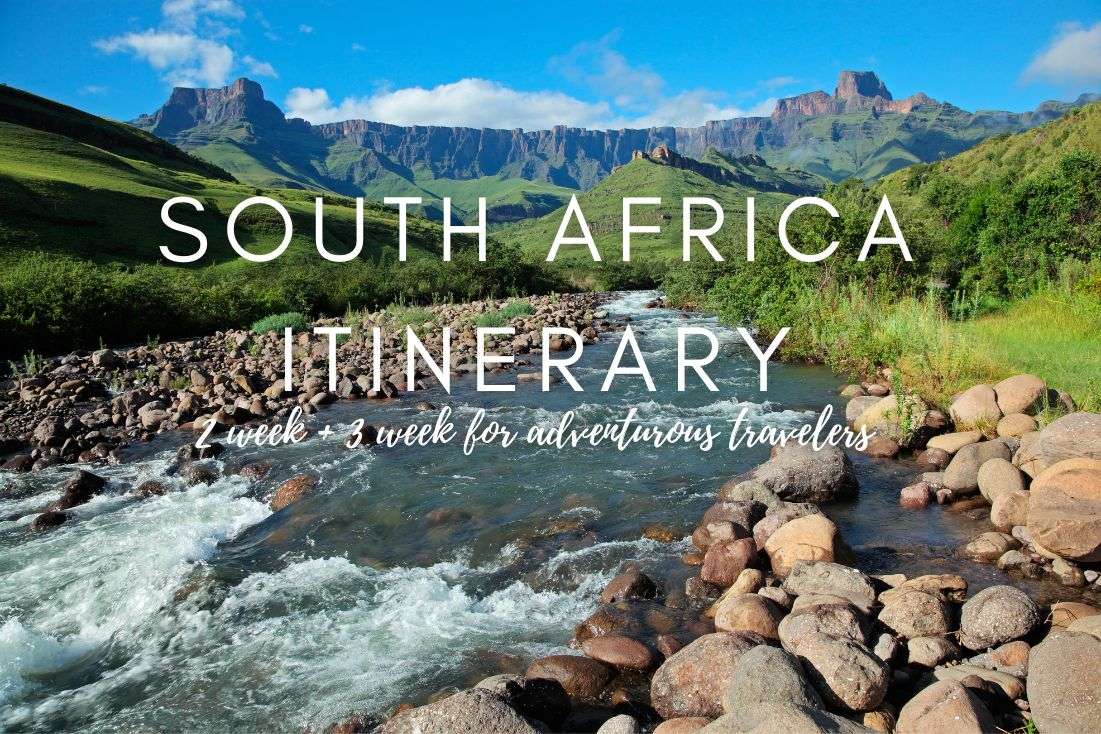
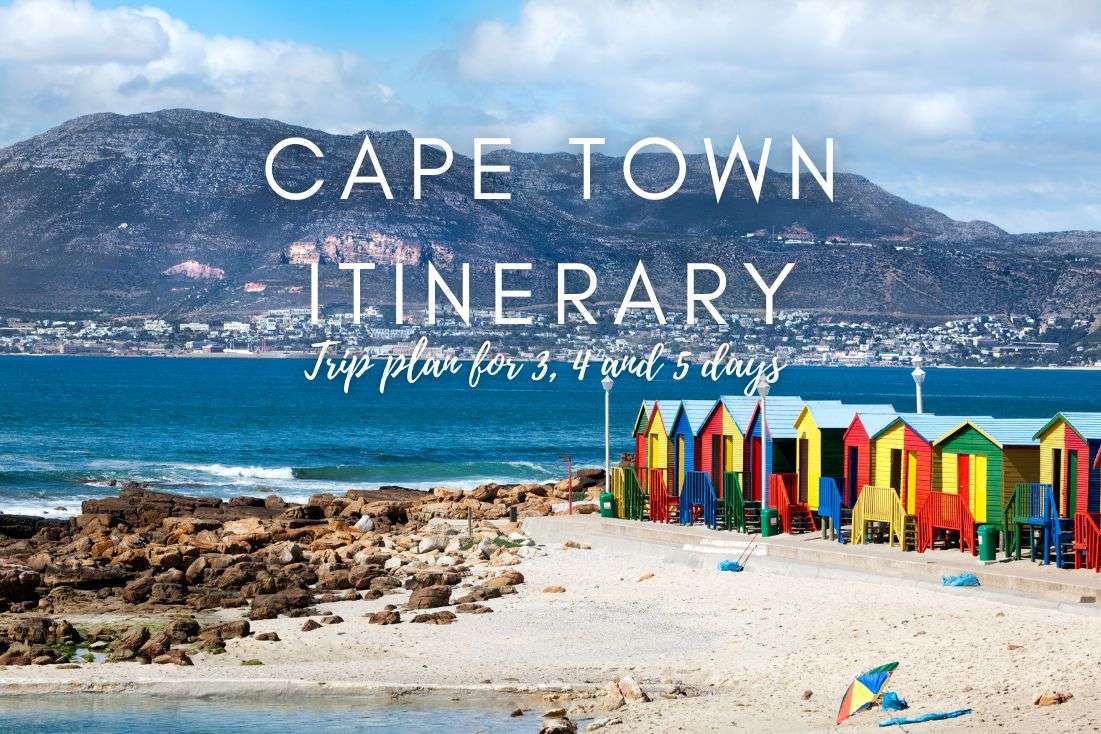
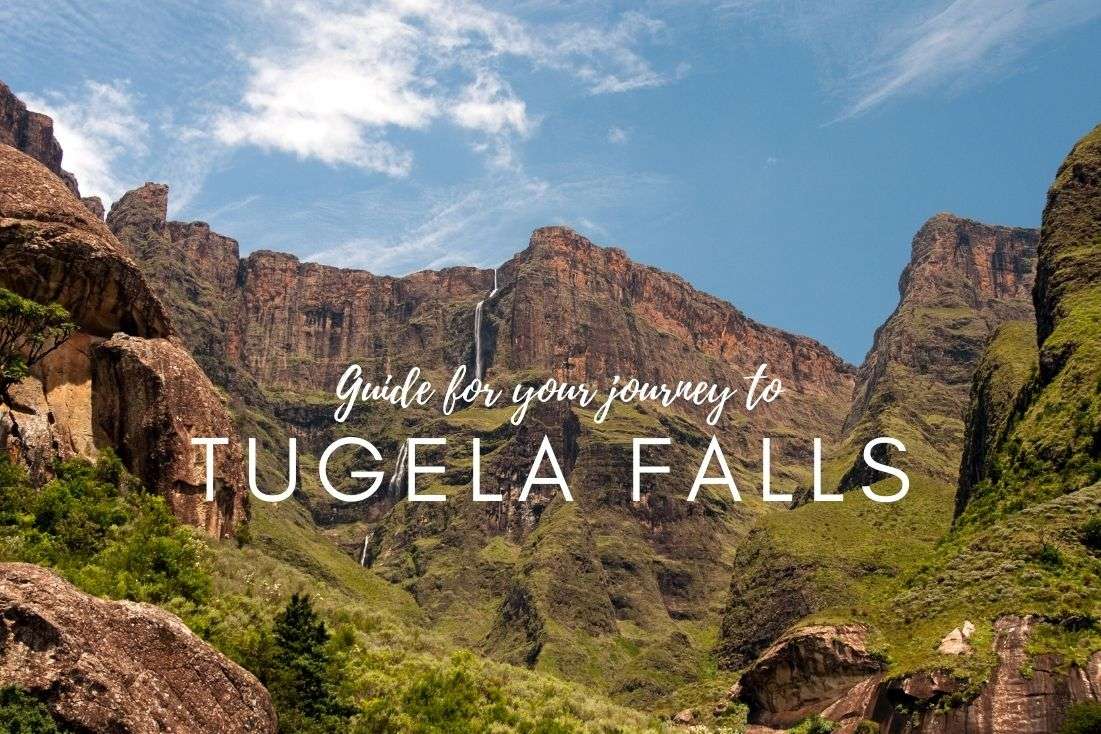





Comments | Thoughts? Give us a shout!